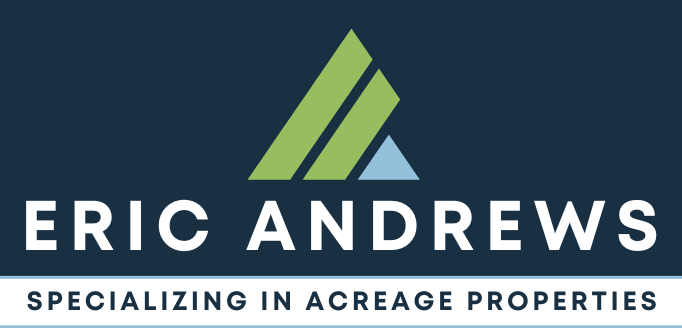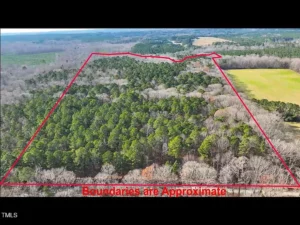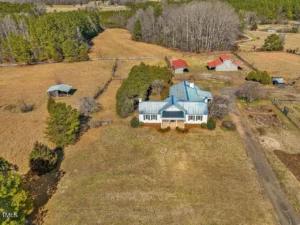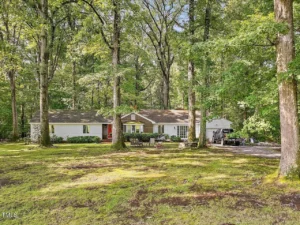North Carolina Accredited Land Consultant Eric Andrews discusses the decision-makers for rezoning land in North Carolina.
1. Administrative. These are municipal planning departments involved in getting approval for rezoning.
2. Quasi-judicial boards such as Town/county/city planning boards. These planning boards are going to look at traffic studies, erosion control studies, and concerns of neighbors.
3. Legislative Groups. These are groups such as County Commissioners. Even when planning departments and city planning boards say no to a project, such as townhouses or commercial buildings, County Commissioners may still say yes and approve a project if there is a need for the project in the community.
Note: Some land owners can still get projects approved in Superior Court even when the other 3 groups deny a project.
Speaker 1: Who are the decision makers to get land rezoned?
Speaker 2: That’s a good question. It depends on several things. There are three types of decision makers. So let’s just suppose you have a piece of land in town and you want to build a dozen town homes on it. You got to figure out who’s got the power and authority, who you have to jump through. And a lot of people want to know, are my neighbors going to have any input? So the first decision maker that you would see is the administrative. So that would be a municipal planning department, town planning department, county planning department. And you go in there and you say, hey, this is my parcel, this is what I want to do with it. Can I do this? And if you’re really lucky, you have a piece of land that’s already approved for that particular density and you can do towns homes on it.
And they say, congratulations to Mr. Andrews. This is town home approved property, you are allowed to put town homes on this by right and here’s your permit, go build your town homes. And there’s no hearing, there’s no neighbor input, you get to roll. But let’s assume that it’s not approved or zoned for that kind of density. Then you’re going to go through what as known as a quasi-judicial decision maker. And that would be a county planning board member, or a town planning board, or a city planning board. And that is really like a court situation. You have to present evidence. You have to show you’re harmed or hurt because of the zoning that you have and you’ll be-
Speaker 1: You can’t just show up and say, I don’t want this over here.
Speaker 2: Right. Right. Well, the neighbors can say, I don’t want this over here, but they have to give reasons. If they give a reason, though, they have to back it up with experts. So you can’t say, I don’t want these town homes here because the traffic’s horrible and we’re going to have more traffic if you give me these town homes. If you want it to have weight, if you want it to have credibility before the planning board, you have to have a traffic expert that will say, well, 10 town homes, a dozen town homes is going to be 38 more cars on this road, dah, dah, dah, dah, and this will…
So you have to have actual facts. You can’t talk about feelings or whatever, you need to substantiate. But so does the pro side. The pro side needs to say, if it is a concern of the planning board, what the traffic will be, you should have your traffic study or if it’s a concern about our streams getting muddy, you should have erosion control studies or if we’re concerned about vegetation, you need to have which trees are you saving and whatnot. So there is a lot to do. So remember, you’re asking for something and if it meets certain criteria, you’re going to get what you’re asking for, but it’s very important to be prepared.
I’ve seen situations where the developer or the head engineer or somebody that came in for the project was just not prepared. Oh, at one time the guy said, I did what the planning department told me to do and they’re like, you’re not going to get approved with the bare minimum right now. You have to impress. So the board will take a look at all these facts. They make sure it’s following their rules and they’ll make a decision.
Because it’s a court-like situation, they’re hearing evidence, you’re going to hear some pros, you’re going to hear some cons. Sometimes it’s all pros. Neighbors might be concerned about noise, traffic or some other impact. And examples of this quasi-judicial are town planning board, county planning board, or city planning board. Then the third decision maker is legislative. So these are decisions that are made by elective representatives. They are either going to be because you elected them, they’re going to be making the rules, or they’re going to justify the rules. They’re going to give you a variation on your zoning because they feel as though that is going to help out their community. So they have a lot of discretion. That’s not nearly as formal as the quasi-judicial. They’re decisions that influence how a particular area is going to develop and grow. And so example of this would be your town board or in Chatham County, the county commissioners.
So that’s a legislative group that we elect that has ultimate authority. So if the planning department says no, and the planning board says, no, it’s unlikely, but the county commissioners could still say yes. If they felt as though it was a need to help the community, sometimes the planning department can say, yes, the planning board says no. And the county commissioners might say yes. So it’s not the ultimate authority. And even the legislative, the county commissioners, aren’t the ultimate authority. If you feel as though you’ve been harmed, you could take it to court yourself. You can go to a Superior Court and you could sue and say like, look, based on the merit side, this is what they told me I had to do. And they still wouldn’t give me approval. So I’m harmed. I’m going to sue them now.
So with these town homes, if your land was zoned for town homes, all you have to do is get the permits to build. If it wasn’t, you have to go before a board and have a hearing to prove hardship. The planning board recommends it. They might take it to the legislative officials and then you get approval. If they say no, like we said, you can appeal to Superior Court. The biggest thing that people need to know is that land rights are very important in our country. There’s very, very specific rules, but this is a lengthy, expensive process. I mean, at best right now for a site plan approval, we’re talking between 14 and 18 months. And it is very expensive. The engineers are expensive. The plannings, there’s so much going, the surveying’s expensive. The legal work is expensive. There’s a lot of people with hand out wanting to get paid for you to get a site plan approval. I always tell my landowners, if it was easy, everyone would do it. So it is not easy. And I’m telling most of my clients right now, 14 to 18 months.
